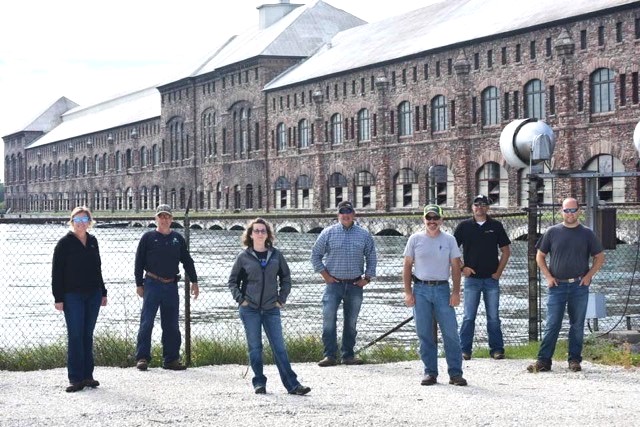In the world of electric cooperatives, the principle of “Cooperation Among Cooperatives” holds a pivotal role in fostering collaboration and mutual support. One notable way in which this principle is actively practiced is through safety auditing—a process that not only enhances safety measures but also exemplifies the cooperative spirit.
A Cooperative Culture
In the U.S., the Rural Electric Safety Achievement Program (RESAP) is our national safety program in partnership with statewide and cooperative safety leaders, utilizing a framework for continuous improvement to improve safety performance and culture.
At the heart of RESAP is a comprehensive examination of safety protocols, emergency response plans, and crew observations in the field. Rather than a mere checklist, safety audits encompass a thorough evaluation of over 200 key questions, spanning regulatory compliance, emergency action planning, and on-site crew assessments.

MECA RESAP (L to R) Becky Mills (Cloverland), Jim Wilson (Retired – Cloverland), Sarah Moeller (Wolverine & MECA Safety), Tom Ulatowski (MECA), Greg Karsten (Presque Isle Electric & Gas), Troy Tiernan (Alger Delta) and Jeff Erridge (HomeWorks Tri-County) – at Cloverland Electric Hydro Plant.
Michigan’s Collaborative Approach
MECA participates in the program both as auditors and participants, traveling as far as Alaska to help assess safety standards with a cooperative approach.
“To us, the process is most successful when the co-op being audited doesn’t feel like someone is trying to say ‘gotcha!’” said MECA Director of Safety Joe McElroy. “In our opinion, it is more productive when we approach it as a fresh set of eyes to help identify any gaps and solutions together.”
The positive outcomes of these safety audits are multi-faceted. Firstly, the peer-driven nature of these audits fosters a collaborative environment, where cooperative representatives share insights and best practices. According to McElroy, over 90% of the findings are commendable, reflecting robust safety measures in place. Approximately 5% of issues require immediate attention, showcasing the proactive approach cooperatives take in addressing potential risks.
Learning Is a Two-way Street
However, the safety auditing process goes beyond compliance, focusing on best practices and continuous improvement. Cooperatives are not only encouraged to address immediate concerns but also to evaluate whether certain practices align with the best industry standards—a testament to the commitment to excellence within the cooperative community.
“I love to visit and see how other co-ops are approaching their safety efforts,” said MECA RESAP team member and MECA Administrative Assistant Sarah Moeller. “It’s an opportunity not only for the co-ops to tighten up their protocols, but for us to learn and bring back fresh ideas to our home cooperatives.”
By actively engaging in RESAP, MECA exemplifies the “Cooperation Among Cooperatives” principle, contributing to the collective improvement of services, local economies, and community well-being.